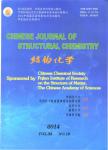In-Situ HP-STM and Operando EC-STM Studies of Heterogeneous Catalysis at Interfaces
In-Situ HP-STM and Operando EC-STM Studies of Heterogeneous Catalysis at Interfaces作者机构:Shanghai Synchrotron Radiation FacilityShanghai Advanced Research InstituteChinese Academy of SciencesShanghai 201204China Shanghai Institute of Applied PhysicsChinese Academy of SciencesShanghai 201000China University of Chinese Academy of SciencesBejing 101000China
出 版 物:《Chinese Journal of Structural Chemistry》 (结构化学(英文))
年 卷 期:2022年第41卷第10期
页 面:29-44页
核心收录:
学科分类:081705[工学-工业催化] 08[工学] 0817[工学-化学工程与技术] 080502[工学-材料学] 0805[工学-材料科学与工程(可授工学、理学学位)]
基 金:financially supported by the National Natural Science Foundation of China (22002183, 11874380) the Photon Science Center for Carbon Neutrality of Chinese Academy of Sciences CAS Key Laboratory of Low-carbon Conversion Science and Engineering,Chinese Academy of Sciences
主 题:HP-STM EC-STM heterogeneous catalysis in-situ operando interfaces
摘 要:Heterogeneous catalysis taking place at solid interfaces plays a crucial role not only in industrial chemical production, energy conversion but also in fundamental research. The dynamic evolution of surface morphology and composition requires full understanding especially under realistic reaction conditions. To this end, conventional scanning tunneling microscopy(STM) has been integrated with high pressure cell and electrochemical cell, forming high pressure(HP) STM and electrochemical(EC) STM for the in-situ/operando characterization at solid-gas and solid-liquid interfaces with atomic resolution, respectively. In this review, we attempt to give a brief introduction to the development and working principle of these two techniques and subsequently summarize several representative progresses in recent days. The dynamic changes in active sites, surface reconstruction, absorbates alteration and products formation are directly characterized in a combination with other surface sensitive technologies. The correlation between surface structures and catalytic performance as well as the underlying mechanism can thus be unraveled, which provides insights into the rational design and optimization of catalysts.



